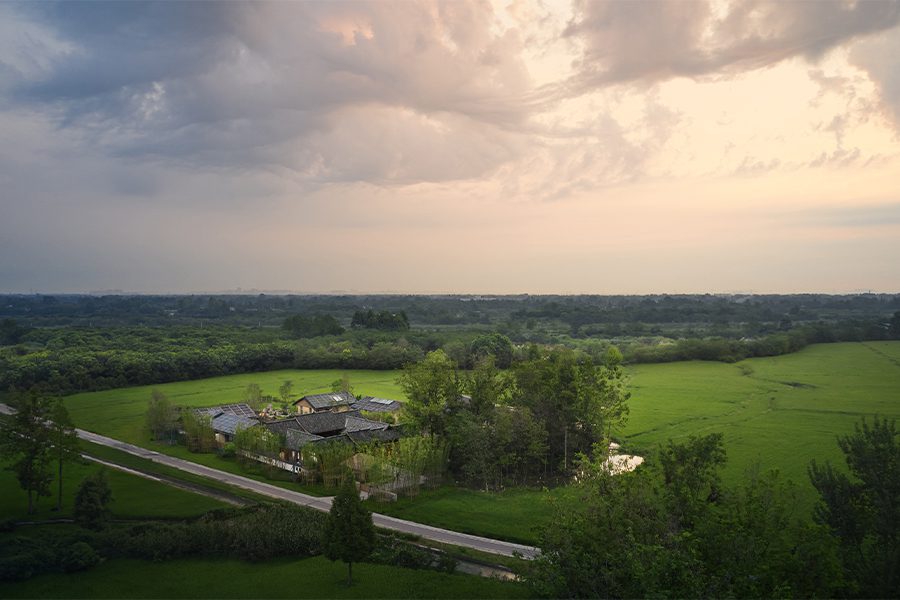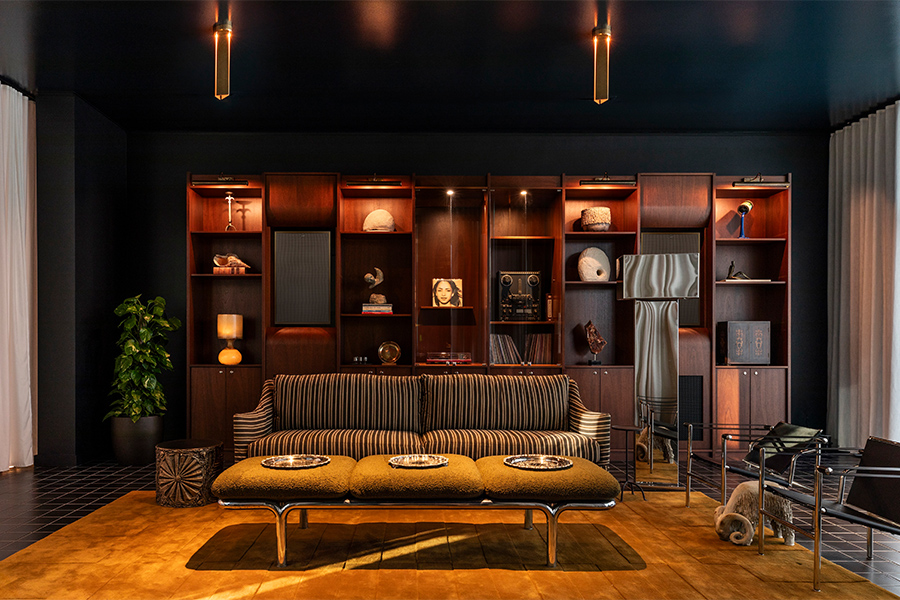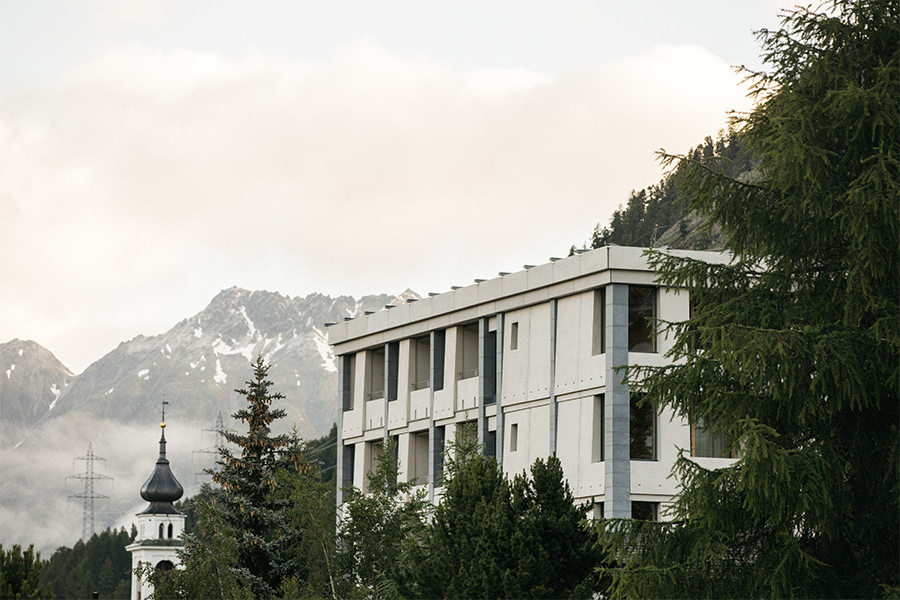Hometown and Field, in the suburban Dayi County in the Chinese metropolis of Chengdu, is “inspired by rural culture and caters to people who are seeking a return to nature,” says Wanbin Liu, design director of BDD Design. “Each space is designed to be open, with elements like large doors, windows, and skylights.”

Folksy and rustic, the six guestrooms were crafted from rammed earth
The six-room property fuses a modern, urban lifestyle with a pastoral, nostalgic setting, an alluring juxtaposition of contemporary convenience and laidback idyll that comes courtesy of the local practice. Creating a feeling like the buildings are almost coming out of the ground, BDD turned to such materials as bamboo, woven hemp, and copper slate, an earthy material palette reinforced by calming beige and yellow hues.
Sustainability was also central to BDD’s vision, so the firm incorporated an energy-efficient air purification system, geothermal heat pumps, and rooftop solar panels.
Spatially, the site directly connects to the past, with “the circulation following the traditional Chinese courtyard-style layout,” Liu says. In the first courtyard that guests encounter, they glimpse into the design heritage of China’s Sichuan province. Here, an ancient structure revamped by BDD houses the reception hall.
Beyond it, a markedly different building fashioned out of sleek glass and steel serves as the social hub in the second courtyard, providing scenic views onto the field from the living room hangout.

Nodding to the design heritage of China’s Sichuan province, the first courtyard guests encounter is home to a reimagined ancient structure
By contrast, the third is dotted with the accommodations, which are folksy, rustic abodes crafted from rammed earth. “The challenge was integrating these multiple architectural styles into a single project,” points out Liu. Uniting the trifecta of courtyards is ample room for rotating exhibitions that invigorate Hometown and Field with fresh artistic perspectives.
At the restaurant, Ruman, guests dine alfresco in the garden, where the ingredients that grow there are celebrated on the menu. It’s a warm, intimate, and educational culinary approach that dovetails with Hometown and Field’s “innovative operational model, combining a professional hotel management team with local villagers,” explains Liu. “The villagers’ families are responsible for farming, maintaining the living spaces, and feeding the livestock, allowing for genuine interactions and a true local hospitality experience.”
This restorative atmosphere pervades Hometown and Field in other capacities too, whether visitors unwind in the tea lounge, or take to the bathing area backdropped by rice fields. The latter is a true experience of reconnecting with the earth, Liu says.
“We want our guests to feel peaceful and relaxed,” he adds, “surrounded by the vast, open landscape, which are things that can be hard to find in city life today.”

Guestrooms are defined by a material palette of bamboo, woven hemp, and copper slate

Fashioned out of glass and steel, the building occupying the second courtyard serves as a social hub with views onto rice fields from the living room’s expansive windows
This article originally appeared in HD’s September 2024 issue.



